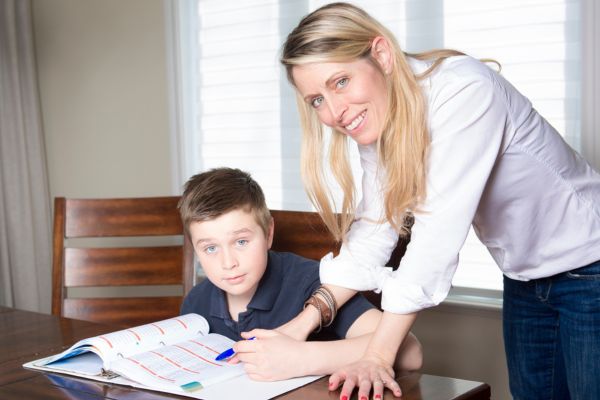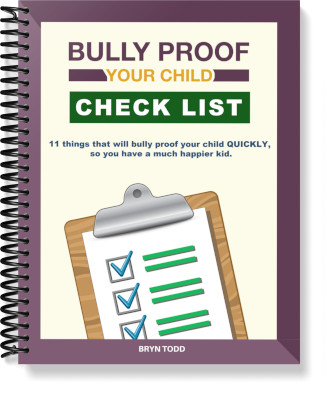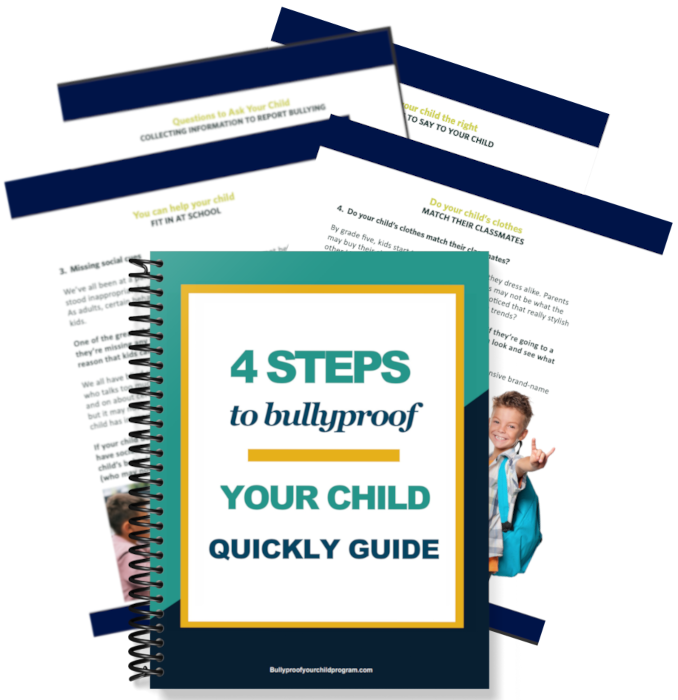
Understanding Childhood Anxiety
When you see your child worrying over every little thing, it’s natural to feel concerned. Anxiety is a part of growing up, but when it starts to mess with their everyday life, that’s when it needs attention.
Knowing the signs and what usually sets off anxiety in kids is key to figuring out if your child needs a helping hand. Remember, you know your child best, and spotting these signs is the first step in supporting them through anxious times.
Recognizing the Signs
When your child is feeling anxious, it might show up in different ways.
Some common signs of anxiety in children include:
1. Worrying too much: If your child often seems really worried about normal stuff, like school or friends, it could be anxiety.
2. Steering clear of things: Notice if they avoid stuff they used to like or get really scared about new things.
3. Feeling sick: Sometimes, anxiety makes kids have headaches or stomachaches, or they can’t sleep well.
4. Getting quickly upset or restless: If your child gets annoyed easily or can’t seem to sit still, it might be anxiety.
5. Having trouble focusing: Anxiety can make it hard for kids to pay attention or concentrate on things.
If you see these things in your child, have a gentle chat with them. Let them know it’s completely okay to feel anxious and that you’re there to help them through it.
Common Triggers
If your child is feeling anxious, it can be due to a lot of different triggers.
Watch out for these common things that might be causing their worry:
● Stress from school stuff, like homework or tests.
● Social stuff, like making friends or talking in front of the class.
● Big changes at home, like if parents split up or you move to a new place.
● Scary events, like being in a car crash or a big storm.
Knowing what makes your child anxious is a big step. You can then help them by talking about their worries and teaching them ways to feel better when things get tough.
Remember, lots of kids feel anxious. Understanding what’s going on helps you support your child to feel better and enjoy life.
Strategies for Managing Worries
Seeing your kid worry about everything can be tough. You might feel a bit lost on how to help. But, hey, there are strategies to make things better. Try these:
Creating a Supportive Environment
You’re doing such a great job as a parent, and creating a safe, comforting environment for your kiddo is key when they’re feeling anxious.
Here are some ways you can create a supportive environment for your child:
1. Listen to your child: Listen to them. When your child shares their worries, give them your full attention. Show them you really get what they’re saying and that you’re always there for them.

2. Validate their feelings: Say it’s okay to feel worried. Everyone gets anxious, and it’s perfectly normal. Let them know their feelings are valid. It helps them see they’re not alone in this.
3. Provide reassurance: Gently reassure your kid that they’re safe and you’ve got their back. Offer lots of comfort. Let them know they’re safe with you and that you’re always there to protect and support them.
4. Create a routine: A steady routine can really calm their nerves. Keep things predictable. A regular routine for eating, sleeping, and playing can make a huge difference in making them feel more secure.
More posts you may like
- When your child isn’t invited to a party
- How to build confidence in a sensitive child
- My child is at a new school with no friends
- Should I intervene when my child is excluding friends?
Teaching Coping Skills
Guiding your little one in learning how to cope is really important when they’re dealing with worries and anxiety. It’s about giving them some tools they can use whenever they start feeling jittery or scared. This way, they can start handling these tough feelings more easily.
Let me break it down for you:
● Deep breathing: Show your child how to take slow, deep breaths when they’re feeling anxious. It’s a great way to help them calm down and relax.
● Positive self-talk: Encourage them to think positive thoughts. If they start worrying, help them switch to happier thoughts instead.
● Visualization: Teach them to picture happy or calm scenes in their mind. This can help them feel less anxious.
● Problem-solving: Work with your child to figure out problems. Help them think of different ways to solve what’s worrying them and pick the best one.
Creating a space where they feel supported and teaching them coping skills can make a big difference. They’ll learn how to handle their worries better.
And hey, if things seem really tough, there’s no shame in getting some professional advice. Just be there for them, that’s what matters most.
Professional Help and When to Seek It
When your child’s worries start to get in the way of their everyday activities, it might be the right time to think about getting some professional help. This step is really about making sure they get the support they need to feel better and enjoy their days like any kid should.
Here are some options to consider:
Therapy Options
Therapy can be a big help for your child if they’re dealing with anxiety. One kind, called cognitive-behavioral therapy (CBT), works really well for kids. It helps them see the worries in their mind and teaches them ways to change these thoughts.
Sometimes, other kinds like play therapy or art therapy work well too. It’s all about finding what helps your child the most.
Medication and Its Role
Sometimes, doctors might suggest medicine for your child’s anxiety. This could be something like selective serotonin reuptake inhibitors (SSRIs) or benzodiazepines. But it’s really important to remember that these medicines are usually not the first thing to try.
A doctor or a psychiatrist who really knows what they’re doing should make this call. Keep in mind, using medicine should be careful and thoughtful because it’s about your child’s health and well-being. Medicines should only be used under the guidance of a healthcare professional.
Seeking help for your child’s anxiety shows you’re strong, not weak. With the right support and treatment, your child can learn to handle their worries and have a happier, healthier life. Remember, you’re doing the best for your child by getting the help they need.

Frequently Asked Questions:
1. How can I help my child who worries too much?
When you see your child worrying too much, it’s like a little alarm going off. You know it’s time to step in. Let them know it’s okay to feel anxious. Everyone does at times. Listen to them, really listen. Hear their worries without jumping in to fix things right away. Make sure they know you get it, that their feelings are real and you’re there for them, no matter what. Together, you can figure out what’s setting off their worries. Work on simple ways to handle those tough moments. Maybe it’s drawing, playing outside, or learning to take deep, calming breaths. It’s about finding little things that can make a big difference for them.
2. What are common signs of anxiety in children?
When your child is feeling anxious, it might show up in a bunch of different ways. Maybe they worry a lot more than usual or have trouble getting to sleep. You might see them getting easily upset or feeling really restless. Sometimes, they might not want to go to certain places or be around certain people. And it’s not just in their head – they might get headaches or stomachaches, or not feel like eating much. If you’re seeing these signs, it’s really important to have a chat with them. And remember, it’s totally okay to ask for some extra help if you need it.
3. How can I support my child who is anxious about school?
When your kid feels scared about school, it’s pretty normal, especially when they’re facing big changes like a new class or a whole new school. The best thing you can do is to make sure they know you’re listening and you get what they’re feeling. Encourage them to share what’s bugging them and work together to find ways to handle these nerves. Helping them get into a regular routine and setting goals that aren’t too tough can make a big difference. Also, staying in the loop with what’s happening at school and talking with their teachers can help make sure your kid gets the extra support they might need.

4. What are some effective ways to address a child’s fear of parental loss?
If your child is scared about losing you, that fear can feel really huge and scary for them. Let them know it’s okay to feel this way. Reassure them that they’re safe and you love them a lot. It helps to have honest chats with them about any big changes happening at home. Keeping their daily routine steady can give them a sense of safety and normalcy. If this fear is really getting in the way of their everyday stuff, it might be a good idea to get some help from a professional, like a counselor.
5. What strategies can assist a child in dealing with anxiety and depression?
When your child is dealing with both anxiety and depression, it’s really important to help them in a way that makes them feel better. You can start by encouraging them to do stuff they love, things that make them smile or feel relaxed. Simple things like taking deep breaths or being mindful – like noticing the little things around them – can help a lot. Having a regular routine and setting goals that aren’t too tough can also make things easier for them. And hey, if things are really hard and it’s messing up their day-to-day life, getting some help from a therapist or thinking about medication with a doctor’s advice could be the right move.
6. Are there safe remedies or treatments for children experiencing anxiety?
Absolutely, there are safe ways to help kids who are feeling really anxious. One good approach is cognitive-behavioral therapy – it’s like a special kind of talk therapy that helps kids learn how to think and react differently to anxious feelings. Sometimes, a doctor might suggest medication, but that’s something you’d carefully decide together. Simple things like learning to relax through breathing exercises can also make a big difference. Besides these professional treatments, there are everyday things you can do at home to help your child feel better. Making sure they get enough exercise, sleep well, and eat healthy foods can really help in managing anxiety. It’s all about finding the right mix of professional advice and simple, everyday changes that can make your child feel more at ease.
Conclusion
Wrapping up, it’s okay for kids to worry a bit – it’s part of growing up. But, when worry turns into something big, it could mean your little one is dealing with anxiety. If you’re a parent, keeping an eye out for anxiety signs is really important. Does your child shy away from things they used to enjoy? Are they having a hard time sleeping, or often complaining of headaches or stomach aches? These might be clues.
If you spot these signs, it’s a good idea to gently chat with your child about it and think about getting advice from a professional in mental health. They’re the experts who can really guide you and your child through this.
But there’s also lots you can do at home. Creating a space where your child feels safe to talk about what’s bugging them can really help. You can show them simple relaxation methods like deep breathing, which can make a world of difference in calming those anxious feelings.
Each kid is different, and what helps one child might not be the right fit for another. The key is to keep learning, stay supportive, and when in doubt, seek out the experts. That way, you’re doing your best to help your child find their feet again in a world that can sometimes feel a bit too big and scary.



